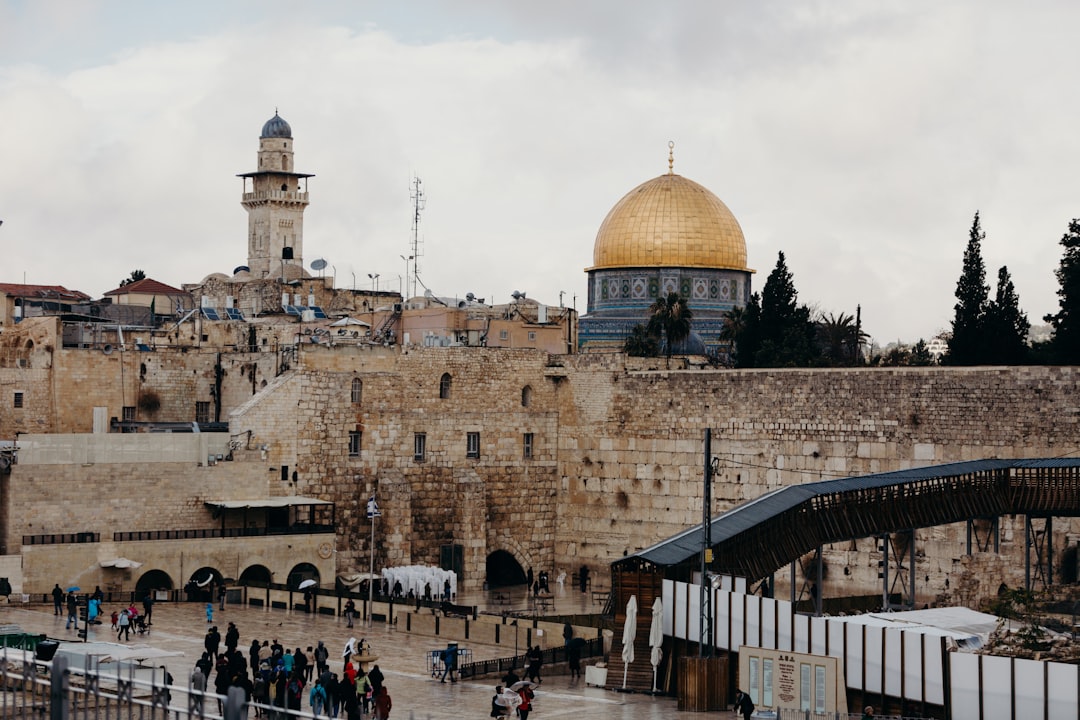Israel has denied accusations that it buried Palestinians in a mass grave, following the discovery of more than 300 bodies in the courtyard of a Gaza Strip hospital.
Karima al-Ras went to the mass grave at Nasser hospital in Khan Younis to look for her son Ahmad.
“I lost my son two months ago,” the 55-year-old told Sky News. “I went to see his grave, the [Israelis] took him from his grave.
“I spent two-and-a-half months looking for him.”
Palestinian first responders had unearthed the bodies from the grave and laid them out on the ground, covered by white sheets or blue tarpaulin.
For three days, Karima searched through them. She finally found her son, recognising him first by his wounds – a gunshot to the leg and an opening in his stomach – then by his features; his beard and his hair.
“This is my son, my instinct, my son,” she said. “I love Ahmad. Ahmad is my soul.”
The discovery of hundreds of bodies in the courtyard of Nasser hospital prompted the Hamas-run government to accuse Israel of digging the graves “to hide its crimes”.
The UN says it is investigating claims that some of the bodies had their hands bound and were stripped of clothing.
On Tuesday, Israel’s armed forces described the accusations as “baseless and unfounded” but admitted removing bodies for inspection and “return[ing] them to their place”.
Analysis of satellite imagery and social media shows how dozens of bodies were interred in mass graves during Israel’s weeks-long siege of the hospital, and how these graves were subsequently bulldozed while Israel occupied the complex.
Dozens of bodies buried in hospital courtyard
Israel began its siege of the hospital in late January, after claiming Hamas fighters were using it as a base.
More than 10,000 Palestinians were sheltering there at the time, according to Gaza health officials, along with 300 staff and 450 patients.
Unable to transport bodies to nearby cemeteries, hospital staff soon began burying the dead in the hospital grounds.
On 22 January, Gaza’s health ministry said staff had been forced to bury 40 bodies in a mass grave in the hospital’s courtyard.
On 27 January, the ministry said 150 had been buried there.
Footage uploaded on 26 January shows dozens of bodies buried in makeshift graves.
Sky News has located and verified this video, as well as other mass graves dug by Palestinians during the siege.
Graves destroyed while IDF occupied hospital
On 15 February, Israel Defense Forces (IDF) began its full-scale invasion of the hospital grounds.
The footage below shows its vehicles breaching the compound walls.
Soon after entering the complex, the IDF claimed to have intelligence that the bodies of Israeli hostages were being held there.
On Tuesday, the IDF admitted it had examined the bodies of Palestinians buried in the compound to check whether any hostages were among them.
“The examination was carried out respectfully while maintaining the dignity of the deceased,” the IDF said. “Bodies examined, which did not belong to Israeli hostages, were returned to their place.”
But satellite imagery and footage uploaded to social media shows extensive damage to the sites. Bulldozer tracks were left among the graves.
Footage uploaded four days after the IDF left Nasser hospital shows extensive destruction at the southeastern corner of the complex, where a mass grave had been dug on 3 February.
In another video, similar damage is visible at the site of the hospital’s other mass grave. An arm is visible, partially buried in a mound of earth.
Satellite imagery confirms that the damage was caused while Israeli forces were occupying the complex, between 15 and 22 February.
The images below show that extensive damage to both graveyards occurred between 14 and 21 February.
Footage posted online and verified by Sky News shows Israeli forces were operating bulldozers during their occupation of the hospital.
These bulldozers are consistent with the track marks visible in the ruins of the graveyard, both in satellite imagery and in video taken at the scene.
‘We want to rest’
In recent days, many Palestinians have returned to Nasser hospital to search for their dead.
Videos recorded during the search shows that new graves have been dug since the Israelis left.
Karima al-Ras has now buried her son properly.
“I felt comfort when I saw my son and I buried him in my own hands, with his siblings,” she told Sky News.
“Goodbye, my son. Ahmad, say hello to your father and to Amal.”
Others were still looking for relatives, including 14-year-old Moayed Mustafa.
He was searching for his mother, father, sister and cousin, after his entire family was killed in an airstrike.
“I came here to look for them,” he told Sky News. “I only found my mother, we buried her yesterday.”
“It took me some time to recognise her.”
“Solve this issue with the world, solve it with the [Israelis], we want a solution, we want to rest,” Mustafa said.
“We don’t want to be living like that, we want to live. There is no life.
“This is all for nothing.”
Additional reporting by Adam Parker.
The Data and Forensics team is a multi-skilled unit dedicated to providing transparent journalism from Sky News. We gather, analyse and visualise data to tell data-driven stories. We combine traditional reporting skills with advanced analysis of satellite images, social media and other open source information. Through multimedia storytelling we aim to better explain the world while also showing how our journalism is done.
